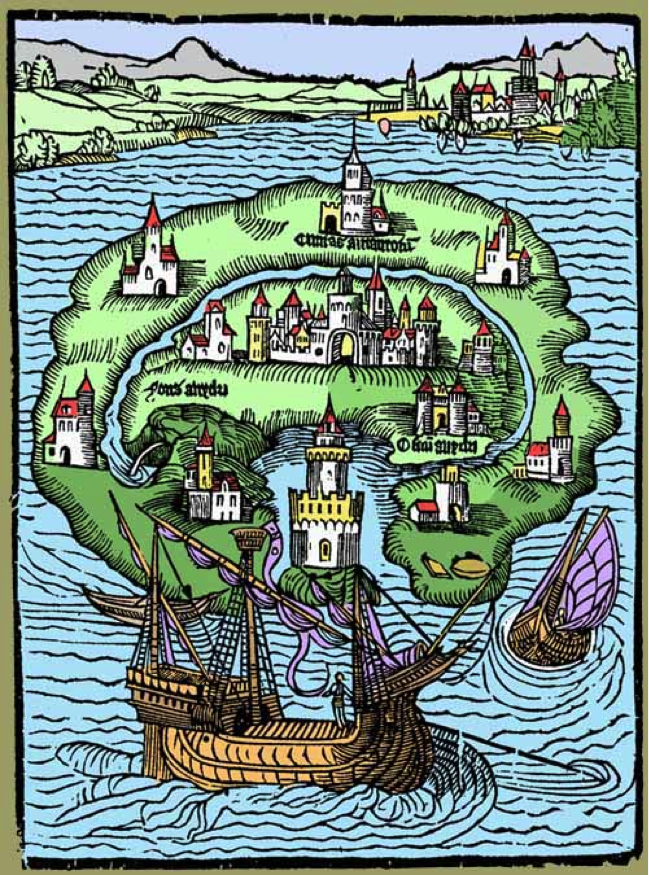To commemorate the 500th anniversary of Thomas More’s literary landmark, “Utopia,” Dr. Michael Mendle will launch the “Year of Utopia” lecture series. To begin the series, Mendle will introduce both More’s book and the “Year of Utopia” to the public on September 16th at 4 p.m. in Gorgas Library Room 205.
“I wanted to celebrate the occasion and to get people to think about the wonderful old things that don’t die,” Mendle said.
Mendle taught English history within the Department of History from 1980 to 2014. Some of his key research interests are early modern English political thought, early modern English political culture source formation and the construction of early modern history.
Mendle said Utopia was published in 1516, presenting themes in which can be connected to many enduring concerns of social and political thinkers. Mendle will present “Utopia” in its own sixteenth-century terms. Activities to be developed during the year will expand utopian and dystopian themes across time and discipline.
“Virtually every department in Arts and Sciences, and many beyond, could have things to share,” Mendle said.
Mendle said Utopia presents the customs and values of the island of Utopia as revealed by More’s alter ego, the seafarer Raphael Hytholoday. The reader learns that the imaginary but ideal Utopians have conquered the greed, war, poverty and demographic collapse that More thought threatened his world.
Mendle pointed out that, in addition to other visions of ideal societies and experiments in putting utopian ideals into practice, an opposite genre predictably emerged, the “dystopia.” Currently popular in contemporary films and fiction, dystopias are also extremely popular in society because they exemplify the darker topics of life. This can be seen in modern films and books such as The Hunger Games and Divergent and will be explored in the series.
“At Universities, whether it is here at Alabama or anywhere else in the United State, or even in the world, we are desperate as professors to create utopian students,” said Dr. Margaret Peacock, a Russian history professor who will also be a key figure in the series. “We desperately need that idealism of the young in order to continue to try to make the world a better place. Utopianism, regardless of its flaws and its inconsistencies, is still a really important trait in a society that wants to get better.”
Through the “Year of Utopia”, students can understand the importance of the utopian and dystopian speculations and societies. The series will grow and expand with student and faculty input and contribution. According to the official website, http://yearofutopia.as.ua.edu/, “All manner of discourse, activity, events and impromptu reflections on topics utopian and dystopian shall be fair game, and this website can serve to coordinate and inspire them.”
On the website is a list of classes The University of Alabama offers that possess utopian themes, ranging from English classes, such as, “Early American Literature,” a history class called, “Russian Rebels: The Roots of Revolution,” and the biology class, “Dystopia or Utopia: The Perils and Promise of Personalized and Genetic Medicine”.
“In the class itself, we are not reading a vast amount of Thomas More, but we are really looking at the people who followed in his footsteps,” said Dr. Peacock, who teaches the class “Russian Rebels: The Roots of Revolution.” “These are the people who were studying the great enlightenment philosophers and post-enlightenment philosophers.”
More events will be announced as they emerge. The website offers a blog for immediate participation.









